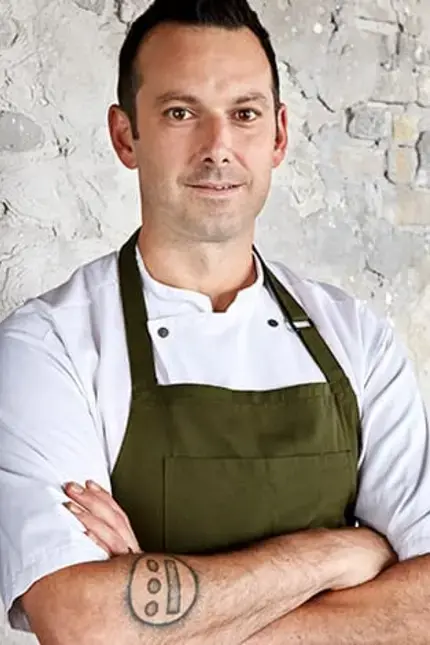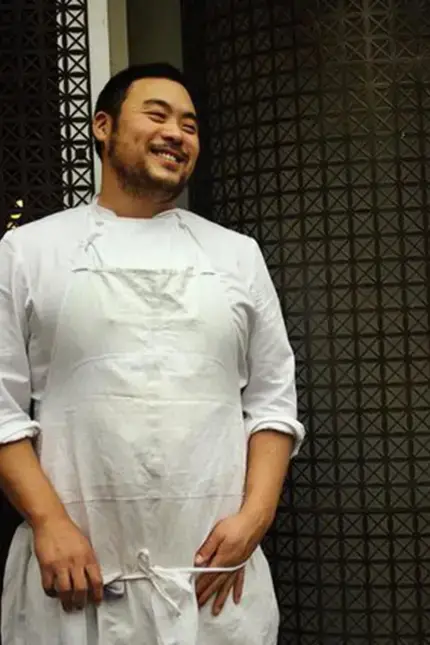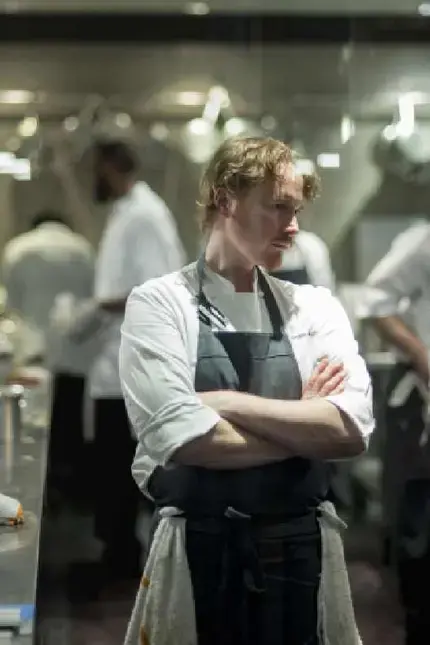Born in Los Angeles and raised in Seoul and other cities around the world, Kim's exposure to diverse cultures and international cuisines, combined with a family background in winemaking, hospitality, and design, gave him unique insights into the intersection of art, design, and food from a formative age—an early influence that sparked a passion for high-end cuisine and a dream of owning a restaurant one day.
After earning a degree in Business Administration and working in international marketing, Kim’s extensive business travel deepened his appreciation for different cuisines while sharpening the business skills necessary for running a restaurant. In his 20s, Kim co-founded his first restaurant with friends, but the venture faltered after the head chef’s departure. Determined to succeed, Kim decided to learn how to cook himself, training rigorously at family-run Korean restaurants.
15 years later, Kim moved to New York to attend the Culinary Institute of America, where he refined his formal culinary skills and mastered French techniques. Post-graduation, he honed his craft at esteemed American restaurants like Bouley and Gramercy Tavern, integrating French culinary techniques into his signature style.
In 2015, Kim made his mark in New York with the opening of Oiji in the East Village, where his modern interpretation of Korean cuisine garnered critical acclaim and a popular following. After seven successful years, he launched the elevated Oiji Mi in the Flatiron District with his original Oiji team, followed shortly by Bōm, his most ambitious venture yet.
Kim's innovative fusion of traditional Korean practices with contemporary techniques has solidified his reputation as a leading figure in New York’s fine-dining scene.
Restaurants
Kim first made a notable splash on the New York restaurant scene with his well-conceived neighborhood restaurant Oiji in the East Village. The restaurant featured low-key yet refined Korean dining. The overwhelmingly positive reception set the stage for his more ambitious and elevated fine-dining ventures, Oiji Mi and Bōm.
In 2022, Kim launched Oiji Mi, building on Oiji’s success but taking a fine-dining approach to Korean cuisine. The restaurant’s five-course prix fixe menu earned it a spot on Esquire's Best New Restaurants in America list for 2023, and shortly after, it was awarded a Michelin star.
In 2023, Kim expanded his vision with Bōm, a chef's tasting counter hidden behind Oiji Mi. The exclusive space seats just 17 guests around a U-shaped marble counter and features a 12-plus-course tasting menu, with a special focus on wagyu beef. Bōm quickly gained acclaim for its modern, creative take on traditional Korean cuisine. Within months, it was awarded a Michelin star and appeared on a list of the best Korean restaurants outside Korea created by The World's 50 Best Restaurants team.
Kim is now considered one of the most exciting figures in New York’s fine-dining scene. With his innovative and visionary approach, he pushes the boundaries of Korean cuisine.
Recipes and dishes
Kim offers an inventive approach to Korean cuisine, which he calls "creative contemporary Korean." His goal is to position Korean food as equally innovative and sophisticated as any global cuisine, a vision realized in his two standout restaurants.
Known for skillfully combining traditional Korean flavors with cutting-edge techniques, Kim's dishes reflect his distinctive refined dining style. Oiji Mi and Bōm offer fresh interpretations of Korean cuisine while deeply respecting its heritage.
At Bōm, the tasting menu highlights the finest seasonal ingredients, seamlessly merging classic Korean cooking with modern culinary artistry. Dishes spotlight vegetables, fish, and wagyu beef, all treated with equal care and precision, prepared and presented in front of the guests seated at the chef’s table.
At Oiji Mi, dishes like butter-poached lobster mandu showcase Kim's ability to merge his French culinary training with Korean flavors. The traditional Korean dumpling is reimagined with lobster and a luxurious seaweed beurre blanc, striking a perfect balance between innovation and authenticity.
Kim continually redefines Korean cuisine, blending tradition, creativity, and a playful edge in each thoughtfully crafted dish, pushing the culinary boundaries of his cultural heritage.











